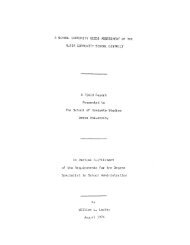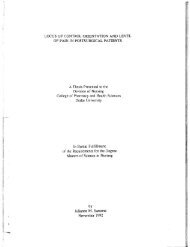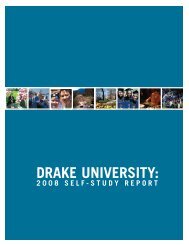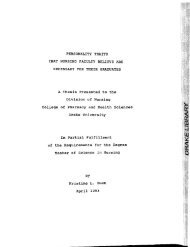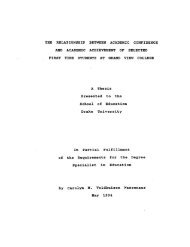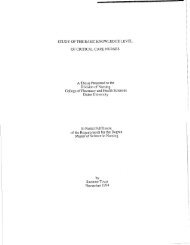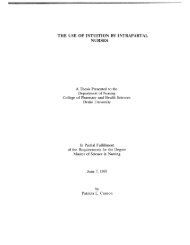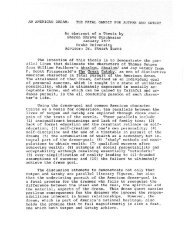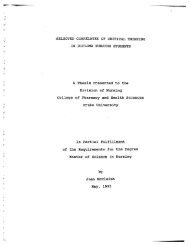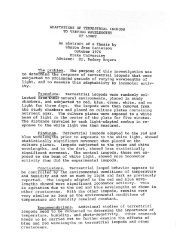LEADERSHIP CHARACTERISTICS OF ... - Drake University
LEADERSHIP CHARACTERISTICS OF ... - Drake University
LEADERSHIP CHARACTERISTICS OF ... - Drake University
You also want an ePaper? Increase the reach of your titles
YUMPU automatically turns print PDFs into web optimized ePapers that Google loves.
Chapter 5<br />
SUMMARY, CONCLUSIONS, DISCUSSION, AND<br />
RECOMMENDATIONS<br />
Leadership styles of hospital CEOs were characterized by a high<br />
level of transformational leadership behaviors, transactional behaviors and<br />
to a much lesser extent, passive-avoidant behaviors. Their leadership<br />
styles were not consistently related to their leadership training, gender,<br />
age, years of experience, stated values, or hospital size or setting in which<br />
they worked. Finally, these transformational CEOs, of both genders,<br />
perceived their own leadership style to be consistent with how others<br />
perceived them.<br />
7. Hospital C EOs demonstrated greater transformational and transactional<br />
leadership traits and behaviors than did leaders in three meta-analyses<br />
performed since 7 992.<br />
The results of this study suggest that hospital CEOs had high<br />
levels of transformational leadership behaviors and traits that could serve<br />
their organizations well. These CEOs paired their high transformational<br />
leadership levels with elevated transactional leadership levels to create<br />
the best of both worlds (Table 6). Additionally, hospital CEOs had a mean<br />
ranking of passive-avoidant leadership that was lower than that identified<br />
by the meta-analysis studies of Bass (I 999), Lowe et. al, (1 996), and<br />
Gasper (1 992).



